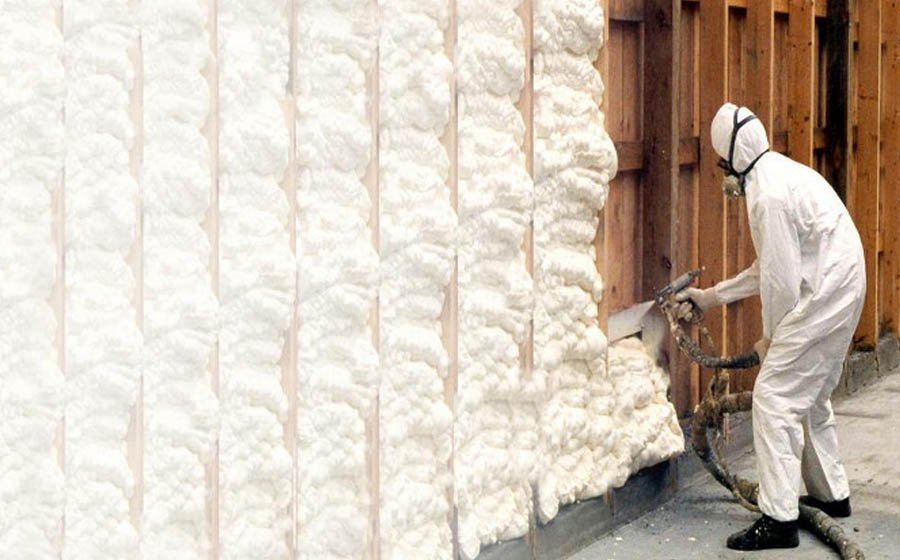Many homeowners prefer spray foam insulation for many reasons, one of which is its ability to improve indoor air quality. It’s also known for its ability to keep the home dry, warm, and comfortable. You can check spray foam insulation in Austin, Texas if you’re a homeowner looking for something to keep your home dry and comfortable.
However, one of the most frequently asked questions about this type of insulation is its ability to retain water. A lot of homeowners want to know if it’s waterproof or not. To find out, it’s essential to discuss the types of spray foam insulation.
If you’re a homeowner curious to know if spray foam insulation is waterproof, then keep reading.
Types of Spray Foam Insulation
Closed-cell Spray Foam Insulation
Closed-cell spray foam is not only denser than its open-cell counterpart, but it’s also more efficient and stronger. It offers maximum support to your properties and acts as a barrier to moisture. Below are some of its other benefits:
- It has a higher R-value.
- It can insulate any kind of structure.
- It’s stronger than open-cell spray foam and can resist unwanted elements.
- It is waterproof. Therefore, you can keep your home dry, irrespective of your location or the weather conditions.
Open-Cell Spray Foam Insulation
Although this type of insulation has its benefits, it is not as common among homeowners as its closed-cell counterpart. This is due to the following reasons:
- It’s light and dense. Hence, it can be easily compressed.
- It can’t support the home, especially during extreme temperatures.
- It has a low R-value; hence it can’t resist heat flow.
Due to the above reasons, especially its dense nature, open-cell spray foam insulation is not waterproof. However, you can use open-cell spray foam to soundproof your home, especially if you live in a busy and noisy environment. You can also use it to insulate corners and crannies.
Importance of Waterproofing
Prevents Mold Growth
Once you start experiencing water damage issues in your home, it won’t be long before you start noticing mold growth as well. This is because mold thrives where there is water, and with time, it begins to spread throughout the building. However, waterproof insulation prevents your home from water damage, and your chances of mold growth in your home will be significantly reduced.
Crawl Space Moisture is a common culprit for fostering mold growth in homes. Properly addressing moisture issues in your crawl space can effectively prevent mold from taking hold and spreading throughout your home.
For a Healthier Home Environment
A healthy environment is one free of excess humidity, moisture, and, more importantly, mold. Living in an environment with mold growth can cause serious health issues. However, waterproofing can help keep your home dry and free of mold growth. This way, you and your family members can enjoy a healthy environment.
Stronger Structures
The structure and integrity of your home will get weaker as heavy rainfall penetrates the floorings and walls. However, having waterproof insulation will help keep moisture out of your building and maintain a stronger structure against flooding.
Control crawl space moisture to prevent these issues from compromising the strength of your home’s foundation. Moisture in the crawl space can seep into the structural elements, weakening them over time. Implementing strategies like encapsulation and dehumidification can create a drier environment, enhancing the structural resilience of your home against moisture-related damage.
Keeps Appliances Safe
Almost everyone keeps their treasured appliances like a dryer, washer, and furnace in the basement. Unfortunately, this area of the home is the most affected during a water damage indictment. So by waterproofing your home, you will protect the items stored in its basement from water damage. This way, you can rest assured knowing that your appliances are safe from water.
Tips For Choosing the Right Insulation For Your Home
Consider the Installation Process
Before you choose the insulation for your home, you must check the installation process and ensure it’s favorable for you. The type of insulation will also determine the installation method. For instance, if it requires some special equipment, you may be unable to install it yourself.
Consider Your Home Structure
There are different insulation materials you can choose from depending on the structure of your home. Ensure your roof is not leaking and your crawl space is not prone to moisture before you add insulation to them. This is the only way your home can benefit from spray foam insulation.
Choose an Expert
How much you enjoy your insulation depends partly on the type of insulation you choose and largely on who handles it. While insulating your home seems simple, it can become complicated if handled by a novice. An expert will choose the right insulation based on your location and other essential factors.
While spray foam insulation is waterproof, you must consider the type before you make a choice. If you’re interested in waterproofing your home, then closed-cell spray foam is the right option for you.
















